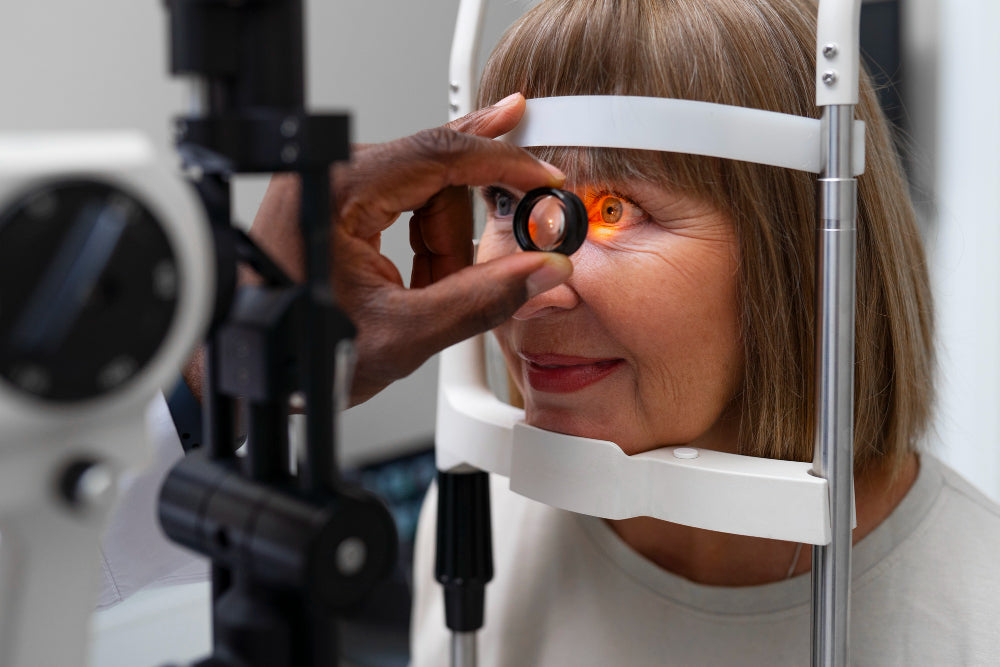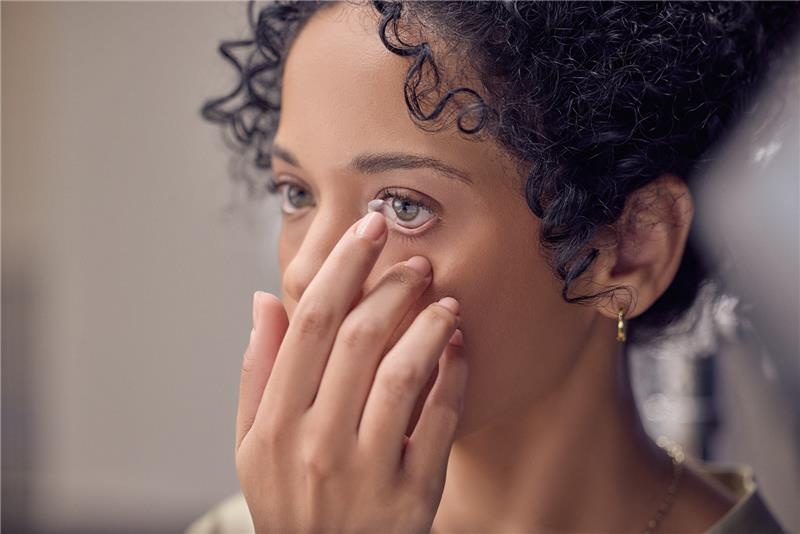If you've just had—or are thinking about having—cataract surgery, you might be wondering: Do you still need glasses after cataract surgery?
The answer isn’t one-size-fits-all since post-surgery vision depends on the lens type used, your original vision, and other eye health factors.
Here's what to expect, why some people still use glasses after surgery, and how Vision Source Rio can help.
Cataract Surgery and Vision Restoration
Cataract surgery is a transformative procedure that removes the eye's cloudy natural lens and replaces it with a clear, artificial intraocular lens (IOL). This process effectively restores vision by removing the cause of the foggy or blurry sight, the cataract.
However, while cataract surgery can significantly improve your vision, it doesn't guarantee freedom from glasses. Your particular vision requirements and the IOL selected determine whether you'll need glasses for one or both eyes after surgery.
Factors That Affect the Need for Glasses After Surgery

1. Types of Intraocular Lenses (IOLs)
The type of IOL selected for your surgery impacts whether you'll still need glasses:
- Monofocal Lenses: As the most common type of IOL, monofocal lenses are designed to provide sharp vision at a single distance, either near or far. Many people with monofocal lenses require reading glasses for close work or distance glasses if their IOL is set for near vision. However, it is possible to set one eye for distance and one eye for near. This is called monovision. If you currently wear this type of visual correction in contact lenses, you are a great candidate for a monovision IOL set up.
- Multifocal Lenses: These lenses allow for clear vision at multiple distances, typically reducing the need for glasses. However, many people with multifocal IOLs still opt for glasses for tasks like reading small print or night driving.
- Toric Lenses: Designed for patients with astigmatism, toric lenses address distorted or blurry vision caused by the condition. These lenses can lessen the need for glasses for distance vision but may still require reading glasses.
- Accommodative Lenses: These lenses mimic the eye's natural focusing ability, often giving a broader range of clear vision. Some patients are able to avoid glasses entirely with accommodative lenses, but others may still prefer glasses for specific tasks.
2. Pre-existing Vision Needs
For patients with high nearsightedness, farsightedness, or astigmatism before surgery, glasses may still be necessary afterward, especially for reading or night driving. Additionally, certain conditions like glaucoma or macular degeneration can affect post-surgery vision, leading to a greater reliance on glasses for optimal sight.
3. Surgical Outcomes and the Healing Process
Recovery from cataract surgery varies, with each patient's eye reacting differently. Some people may experience slight refractive error even after full healing, which can make a low-prescription pair of glasses helpful for achieving sharper vision.
When Glasses May Be Needed After Cataract Surgery
Even if your vision is significantly improved after cataract surgery, glasses may still offer support in specific situations:
- For Reading & Up-Close Tasks: Patients with monofocal lenses set for distance vision typically require reading glasses to achieve clarity for activities like reading or using mobile devices.
- For Night Driving: Multifocal lenses may cause halos or glare under low-light conditions, which can make night driving more challenging. In such cases, glasses designed for night driving can boost clarity and provide extra confidence.
- For Computer Use: Working on a computer for long periods can strain the eyes. Many people find that glasses designed specifically for computer use, often with blue light filtering, improve clarity and reduce eye fatigue.
- For Precision Work: Some tasks, such as detailed crafting, sewing, or certain sports may benefit from the added clarity that glasses can provide, even if the vision is clear without them.
Glasses After Cataract Surgery: For One Eye or Both?

Patients sometimes choose to undergo cataract surgery one eye at a time, allowing for an adjustment period between surgeries. The type of lens chosen for the first eye can influence temporary eyewear needs during this time.
Monofocal IOL: You may have clear vision at one distance (either near or far) in the operated eye but still need glasses for the untreated eye or tasks requiring the opposite distance.
Multifocal IOL: Provides clearer vision at different distances in the treated eye. Temporary glasses for tasks such as reading may be helpful while waiting for the second surgery.
Reasons Why Glasses May Still Be Necessary After Cataract Surgery
Several factors can impact whether glasses are still required:
- Astigmatism: For patients with astigmatism who receive a monofocal IOL without specific astigmatism correction, glasses may still be needed for both near and distance vision. For patients with higher amounts of astigmatism, the toric IOL may not eliminate all of the correction required, and a prescription with a small amount of astigmatism may prove useful for night driving and/or near vision.
- Age-Related Vision Changes: Vision continues to evolve with age. Even with a successful cataract procedure, some eye health changes may necessitate the need for more magnification to see clearly.
- Personal Preference: Some people prefer the visual sharpness or comfort that glasses can provide, even if their vision is clear without them. It ultimately depends on your personal preferences and comfort.
Comprehensive Post-Surgery Support at Vision Source Rio
Vision Source Rio offers an array of post-surgery services to help you achieve the best possible visual outcome. Whether you need glasses for specific tasks or a long-term visual aid, our team is here to support you with the following services:
- Comprehensive Eye Exams: After cataract surgery, a detailed eye exam helps monitor healing and address any necessary adjustments. We access advanced diagnostic tools to assess your vision precisely.
- Contact Lens Fittings: If you prefer not to wear glasses, we provide personalized contact lens fittings tailored to post-surgery vision needs, ensuring comfort and optimal vision.
- Prescription Glasses: If you require glasses, our team will help you select the ideal prescription and style to stay in sync with your life’s needs.
- Dry Eye Treatment: Dry eyes are a common side effect after cataract surgery. We offer custom treatment plans to relieve discomfort, protect your eyes, and support optimal healing.
- Management of Eye Health Conditions: For patients with other eye health concerns, such as astigmatism, glaucoma, or diabetic retinopathy, we provide personalized plans to help keep your vision stable and healthy post-surgically.
Conclusion
Whether you'll need glasses after cataract surgery depends on various factors, including the type of IOL selected and your personal vision needs. Many patients find they can reduce their dependance on glasses, particularly with multifocal or toric lenses. However, some may still need glasses for tasks like reading, night driving, or computer use.
If you're considering cataract surgery or have recently undergone it and want to better understand your eyeglass needs, Vision Source Rio is here to help. Contact us today to schedule an appointment and discuss which intraocular lens is best suited to your lifestyle or explore which post-surgical lens options are right for you. Your journey to a clearer vision can start today!
Discover Additional Insights:





